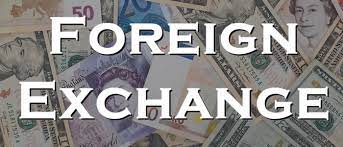By Chinwendu Obienyi
In June, total foreign exchange (FX) inflows into the Nigerian Autonomous Foreign Exchange Market (NAFEM) fell sharply to a six-month low, plunging by 53.7% month-on-month to $1.45 billion, according to data from the Financial Markets Dealers Quotations (FMDQ). This decline occurred alongside the appreciation of the pound sterling (GBP) against the US dollar and Euro, with the pound reaching N1,928/£1 in parallel markets. The pound’s strength was bolstered by the Labour Party’s victory under Keir Starmer over Rishi Sunak’s Conservative Party.
The detailed data from FMDQ revealed a significant drop in domestic investor inflows, which constitute 70% of the total transactions in the market. Domestic inflows decreased by 53% month-on-month to $1.01 billion in June, compared to $1.42 billion in the previous month. This reduction was attributed to a slowdown in activities across various segments: individuals (-68.0% month-on-month), non-bank corporates (-35.7% month-on-month), and exporters (-33.5% month-on-month).
Contributing to the overall decline, there were no inflows from the Central Bank of Nigeria (CBN) in June. Similarly, foreign inflows dropped by 55.9% month-on-month to $434.10 million from $984.40 million in May, as foreign investors remained cautious, waiting for clearer signals on the CBN’s strategies to enhance FX liquidity.
Despite the overall decline in inflows, Nigeria’s FX reserves experienced a boost, reaching a 13-month high with an increase of $465.21 million week-on-week to $34.66 billion. However, the naira continued to depreciate, losing 0.3% week-on-week to close at N1,509.67/$1 in the official market. This depreciation contributed to a reduction in total market turnover, which fell by 43.0% week-to-date to $678.58 million, with transactions occurring within the N1,430.00/USD to N1,550.00/USD range.
The pound’s strength against the U.S. dollar and Euro was notable, with sterling rising 0.1% to $1.278 per pound—the highest level since mid-June—and up 0.01% to 1.180 euros. This appreciation was fueled by the Labour Party’s electoral success, which had already been anticipated and factored into financial markets, driving demand for the pound in the Nigerian parallel market, where it settled at N1,928/£1.
Economic analysts predict continued challenges in FX liquidity, especially if CBN inflows remain weak. “Activities in the FX market this week still reflect that FX liquidity remains frail, given weak inflows from the CBN—despite the recent accretion to FX reserves—and low confidence in the FX market; thus, sustaining the weakness in the naira. We expect FX liquidity to remain frail in the short term, amid no significant supply from the CBN; consequently, heaping pressure on the naira,” analysts commented.
